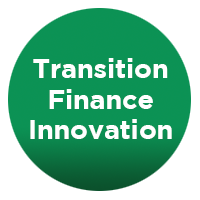Agenda
Opening Day
Monday, Nov. 29

- 11:00am - 12:15pm (ET)
Keynote Session: Global and National Developments in Sustainable Finance: COP26 and SFAC
Sustainable finance is on the rise in Canada and globally. In our opening keynote session, attendees will gain insights on two major initiatives in sustainable finance: COP26 and Canada’s Sustainable Finance Action Council (SFAC). A climate expert will share key takeaways for investors from COP26, and the Chair of Canada’s SFAC will share insights on the Council’s mandate and progress to date. A leading institutional investor will respond to these global and national developments, followed by a panel discussion with all speakers.
Speakers:
Kathy Bardswick, Chair, Sustainable Finance Action Council
Pete Richardson, Climate Strategist, Manifest Climate
Andrea Moffat, Vice President, Ivey Foundation
Roger Beauchemin, CEO, Addenda Capital

- 3:30pm - 4:45pm (ET)
Transition Roundtable with Members of Canada's Net Zero Advisory Body
In February 2021, the Minister of Environment and Climate Change announced Canada’s Net-Zero Advisory Body (NZAB). The primary mandate of the NZAB is to help identify pathways for Canada to achieve net-zero emissions by 2050 and to advise government on related potential policy action accordingly. In this session, Sara Alvarado, Executive Director of the Institute for Sustainable Finance, will lead a dialogue with NZAB members to learn about their work and how it relates to the Sustainable Finance Action Council and other similar bodies recently formed. The discussion will explore the need to focus on pan-Canadian pathways to net-zero across key sectors, as well as the risks and opportunities of the climate transition and key principles that will help Canada achieve net zero by 2050.
Speakers:
Sara Alvarado, Executive Director, Institute for Sustainable Finance
Kim Thomassin, Executive Vice-President and Head of Investments in Québec and Stewardship Investing, CDPQ
Dan Wicklum, CEO, Transition Accelerator
Yung Wu, CEO, MaRS Discovery District
Corporate Dialogues
Tuesday, Nov. 30

- 11:00am - 12:15pm (ET)
Oil Sands Pathways to Net Zero Initiative
In June 2021, five of Canada’s major oil companies announced they had formed the Oil Sands Pathways to Net Zero alliance. The goal of the alliance is to work with the Canadian and Alberta governments to achieve net zero GHG emissions from oil sands operations by 2050. This will involve financing for scaling up carbon capture and storage, hydrogen, small modular reactors and other technologies that will enable them to cut their emissions. In this session, we will hear from two of the alliance’s members about the initiative, including why they consider this an important initiiative, and how they plan to collaborate on the transition to net zero.
Speakers:
Jon Mitchell, Vice President, Sustainability, Suncor
Milla Craig, President and Founder, Millani
Jamie Bonham, Director, Corporate Engagement, NEI Investments
Rhona DelFrari, Chief Sustainability Officer & SVP, Stakeholder Engagement, Cenovus

- 3:30pm - 4:45pm (ET)
Tough Topics: GHG Offsets, Scope 3 Emissions and More
While there have been many events on net-zero, few have addressed the most challenging questions for companies and investors, such as: How do companies and investors measure and report on their scope three emissions? What are the data gaps and how can they be addressed? Can emissions offsets be part of a credible strategy to achieve net-zero, and if so, what are the best practices at the issuer and portfolio levels? A panel of expert practitioners will address these issues and other challenges on the road to net zero.
Speakers:
Priti Shokeen, Head of ESG Research and Engagement, TD Asset Management
Alex Robart, Energy & Sustainability Strategy Leader, Microsoft
Sarah Keyes, CEO, ESG Global Advisors
George Trisic, Chief Governance Officer, Algonquin Power & Utilities Corp.
Just Transition
Wednesday, Dec. 1

- 11:00am - 12:15pm (ET)
Workers’ Perspectives on a Just Transition to Net Zero
The transition to a low-carbon economy means a transformation of industries and business models, which has the potential to negatively affect workforces and the communities in which they operate. The goals of a just transition include preparing the workforce to fully participate in economic opportunities presented by the transition and including them in discussions that affect their livelihoods. Key questions include: What steps should Canadian companies take to mitigate any negative effects of the transition on their workforce and the communities in which they operate? What is the role of investors in setting expectations for how companies are addressing the needs of their workforce in the transition? In this session we will engage with labour leaders on what a just transition means to them, and how investors and companies can work towards a just transition in Canada.
Speakers:
Kelly Hirsch, Head of ESG, Vancity Investment Management
Kevin Thomas, CEO, SHARE
Tara Peel, National Director, Canadian Labour Congress
Luisa Da Silva, Executive Director, Iron & Earth

- 3:30pm - 4:45pm (ET)
Indigenous Perspectives on a Just Transition to Net Zero
Indigenous Peoples have managed collective wealth for millennia – including lands, waters, and resources – with a strong sense of stewardship and consideration for future generations. The recent discoveries of unmarked graves at former residential schools serve as a reminder that Indigenous Peoples have faced disproportionate burdens and adverse impacts of economic and political transitions throughout Canada’s history. How can companies and investors help to enable a just transition that is informed by Indigenous perspectives, supports Indigenous economic opportunities, and mitigates any potential negative impacts on Indigenous communities? This session will explore these questions and more in a candid dialogue on how investors and companies can work in solidarity with Indigenous communities to advance a just transition in Canada.
Speakers:
Rosa van den Beemt, VP, Responsible Investment Analyst, BMO GAM
Mark Sevestre, Senior Advisor, National Aboriginal Trust Officers Association
Kate R. Finn, Executive Director, First Peoples Worldwide
Shannin Metatawabin, CEO, National Aboriginal Capital Corporations Association
Transition Finance Innovation
Thursday, Dec. 2

- 11:00am - 12:15pm (ET)
Transition Financing: Taxonomy, Tools & Strategies
In this session, we will begin with an update on Canada’s “Guide to Transition Finance Principles and Taxonomy”, followed by a panel discussion. Panelists will share insights on such questions as: What is the role for transition finance as Canada moves to be a net zero emitter? What transition financing tools/models and strategies are being used in Canada, and how do these need to be scaled up? What are the key challenges and opportunities? Join this session to learn more about what transition finance means, its importance to Canada, and how it will work in practice.
Speakers:
Siddharth Samarth, Executive Director, Sustainable Finance, CIBC Capital Markets
Patrycja Drainville, Associate Director, Sustainable Finance, Scotiabank
Alyson Slater, Senior Director, Sustainable Finance, Global Risk Institute
Andrew Hall, Senior Director of Sustainable Finance, TMX Group

- 3:30pm - 4:30pm (ET)
Sustainability-Linked Financing Tools
Accelerating the transition to net zero will require significant investment, and companies are increasingly looking to attract capital through innovative financing tools. Sustainability-linked debt provides another financing option for issuers to consider alongside green, social and sustainability bonds. But, issuers need to take care in structuring their financing tools to avoid criticisms of “greenwashing”. This session will provide an introduction to sustainability-linked financing, drawing upon the experience of two issuers who will discuss how they work and the role they can play in financing the transition to net zero.
Speakers:
Mary Robinson, Director, Research & Membership, RIA
Heather Lang, Executive Director, Sustainable Finance Solutions, Sustainalytics
Fanny Doucet, Managing Director & Head, Sustainable Finance, Scotiabank
Geoff Pegg, Head of Sustainability & Environment, Telus
Scaling Up
Friday, Dec. 3

- 11:00am - 12:15pm (ET)
Scaling Up Renewable Energy: How will Canada get it done?
Canada’s commitment to a net zero future means we need to scale up renewable energy to replace fossil fuels and meet growing energy demands. However, market participants are confronted with structural and technological barriers to the growth of renewable energy in Canada and must find ways to overcome these barriers if we are to achieve net zero emissions. What are the opportunities for Canada? What are the barriers and how can market participants overcome them? The session will begin with a presentation on the current state of play for renewables in Canada, followed by a panel discussion on the road ahead for scaling up renewable energy, including the perspectives from issuers about their paths to transition to net zero.
Speakers:
Jamie Bonham, Director, Corporate Engagement, NEI Investments
Julie Cusson, Vice President, Public & Corporate Affairs, Boralex
Mark Zacharias, Special Advisor, Clean Energy Canada
David Layzell, Research Director, Transition Accelerator

- 1:30pm - 2:45pm (ET)
Scaling Up Capital for Net Zero Solutions
Join this session for a deep dive on what’s needed to scale up investment in renewable energy and clean technology solutions. What are the barriers to capital mobilization, and how can they be overcome? What’s the role of policy/regulation? How can we mobilize risk capital in retail and institutional markets? A panel of experts will address these issues and more.
Speakers:
Lindsey Walton, Head of Canada, PRI
Michael McGowan, Principal, Mercer Alternatives
Hyewon Kong, Vice President and Head of Responsible Investing, IMCO
John Cook, SVP & Portfolio Manager, Mackenzie Investments